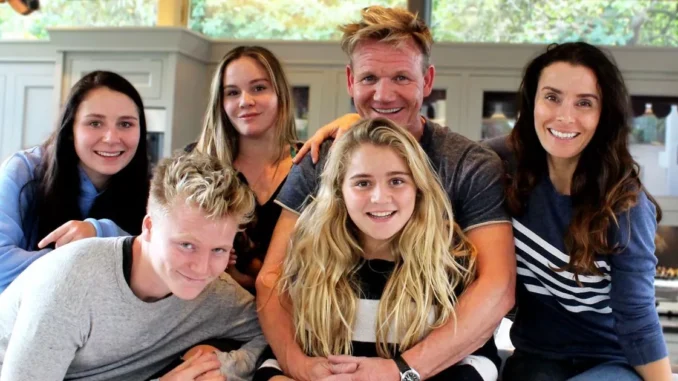
When you hear the name Gordon Ramsay, a few things probably come to mind—his fierce temper, brutal honesty, and unmistakable British accent yelling across a chaotic kitchen. But behind the bleep-filled soundbites and fiery outbursts is a man who has revolutionized the way we view cooking on television. With shows like Kitchen Nightmares, Hell’s Kitchen, Hotel Hell, MasterChef US, and 24 Hours to Hell and Back, Gordon Ramsay hasn’t just built a TV empire—he’s redefined what it means to be a chef in the modern world.
Born in Scotland and raised in England, Gordon Ramsay didn’t start out with dreams of becoming a chef. His early ambition was to become a professional footballer, but a knee injury cut that dream short. Luckily for the culinary world, Ramsay shifted his focus and found his true calling in the kitchen. After training under legendary chefs like Marco Pierre White and Guy Savoy, Ramsay opened his own restaurants and quickly earned Michelin stars—a testament to his razor-sharp standards and unwavering dedication to quality. But it wasn’t until he stepped in front of a camera that the world saw the full extent of his charisma and passion.

Kitchen Nightmares debuted in the UK in 2004 and quickly became a cult hit. The concept was simple: Ramsay would visit failing restaurants and try to turn them around. But what made the show a standout wasn’t just the failing food—it was the emotional unraveling that came with it. Ramsay didn’t just fix kitchens; he dug into personal lives, unearthing broken dreams, family feuds, and emotional meltdowns. He was brutally honest, yes—but also surprisingly compassionate. Kitchen Nightmares was about redemption. He wasn’t there to mock; he was there to help, even if it meant delivering hard truths.
If Kitchen Nightmares was about saving the fallen, Hell’s Kitchen was a culinary battlefield. With red and blue teams competing in high-pressure cooking challenges, only the strongest survived Ramsay’s wrath. What made Hell’s Kitchen unforgettable was the tension—the boiling pots, ticking clocks, and the ever-present threat of being called an “idiot sandwich.” Despite the chaos, the show gave young chefs a platform to shine and earn life-changing opportunities. For Ramsay, it wasn’t just a competition—it was a test of character. Who could handle the heat? Who could rise under pressure? The show remains one of his most popular and enduring franchises.
Ramsay didn’t stop at restaurants. With Hotel Hell, he tackled poorly managed hotels, taking his skills beyond the kitchen and into the world of hospitality. In 24 Hours to Hell and Back, he combined everything he’d learned—arriving in disguise, uncovering problems, and turning failing businesses around in just one day. These shows further proved his range—not just as a chef, but as a fixer of broken dreams. His commitment to reviving struggling businesses, often with his own money and resources, solidified his image as someone who genuinely cared.
Today, Gordon Ramsay isn’t just a chef—he’s a global brand. With over 35 restaurants worldwide, multiple Michelin stars, bestselling cookbooks, and a digital empire that includes YouTube and TikTok content, Ramsay has conquered nearly every platform imaginable. But what truly sets him apart is his authenticity. Love him or hate him, Ramsay is never fake. His passion for food, his demand for excellence, and his commitment to helping others succeed are real. He doesn’t just want people to cook—he wants them to care.
Gordon Ramsay’s television career isn’t just a parade of insults and meltdowns. It’s a deeply human story of transformation, resilience, and redemption. Through chaos and confrontation, he’s helped people find purpose, rebuild their dreams, and in many cases, save their livelihoods. He may be tough—but his heart, like his palate, is exceptional. So the next time you hear him shout, “It’s raw!”—remember: behind every scream is a man who turned kitchen nightmares into culinary gold.
